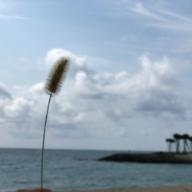下午茶的英文是什麼?
2007-05-21 12:57 am
如題,,,,下午茶的英文是什麼?
回答 (10)
2007-05-21 12:59 am
✔ 最佳答案
下午茶的英文是high tea.
2007-05-21 4:16 am
係afternoon tea,陶杰好似講過~
2007-05-21 1:52 am
high tea
2007-05-21 1:14 am
Afternoon tea
﹉﹉﹉﹉﹉﹉
A cup of teaAfternoon tea (or Low tea) is a light meal typically eaten at 4 o'clock. It originates in Britain, though various places in the former British Empire also have such a meal. However, most Britons no longer eat such a meal.
Traditionally, loose tea would be served in a teapot with milk and sugar. This would be accompanied by various sandwiches (customarily cucumber, egg and cress, fish paste (bloater), ham, and smoked salmon), scones (with butter, clotted cream and jam — see cream tea) and usually cakes and pastries (such as Battenburg, fruit cake or Victoria sponge). The food would be often served in a tiered stand.
While afternoon tea used to be an everyday event, nowadays it is more likely to be taken as a treat in a hotel, café, or tea shop, although many Britons still have a cup of tea and slice of cake or chocolate at teatime. Accordingly, many hotels now market a champagne cream tea.
High tea
﹉﹉﹉﹉
High Tea (also known as Meat Tea*) is an early evening meal, typically eaten between 5 and 6 o'clock in the evening. It would be eaten as a substitute for both afternoon tea and the evening meal. The term comes from the meal being eaten at the ‘high’ (main) table, instead of the smaller lounge table. It is now largely replaced by a later evening meal.
It would usually consist of cold meats, eggs and/or fish, cakes and sandwiches. In a family, it tends to be less formal and is an informal snack (featuring sandwiches, biscuits, pastry, fruit and the like) or else it is the main evening meal.
On farms or other working class environments, high tea would be the traditional, substantial meal eaten by the workers immediately after nightfall, and would combine afternoon tea with the main evening meal.
"April 23.—Mr. and Mrs. James (Miss Fullers that was) came to meat tea, and we left directly after for the Tank Theatre". The Diary of a Nobody. George and Weedon Grossmith, with illustrations by Weedon Grossmith. 1892.
In recent years, High Tea somehow became a word for exquisite afternoon tea.
﹉﹉﹉﹉﹉﹉
A cup of teaAfternoon tea (or Low tea) is a light meal typically eaten at 4 o'clock. It originates in Britain, though various places in the former British Empire also have such a meal. However, most Britons no longer eat such a meal.
Traditionally, loose tea would be served in a teapot with milk and sugar. This would be accompanied by various sandwiches (customarily cucumber, egg and cress, fish paste (bloater), ham, and smoked salmon), scones (with butter, clotted cream and jam — see cream tea) and usually cakes and pastries (such as Battenburg, fruit cake or Victoria sponge). The food would be often served in a tiered stand.
While afternoon tea used to be an everyday event, nowadays it is more likely to be taken as a treat in a hotel, café, or tea shop, although many Britons still have a cup of tea and slice of cake or chocolate at teatime. Accordingly, many hotels now market a champagne cream tea.
High tea
﹉﹉﹉﹉
High Tea (also known as Meat Tea*) is an early evening meal, typically eaten between 5 and 6 o'clock in the evening. It would be eaten as a substitute for both afternoon tea and the evening meal. The term comes from the meal being eaten at the ‘high’ (main) table, instead of the smaller lounge table. It is now largely replaced by a later evening meal.
It would usually consist of cold meats, eggs and/or fish, cakes and sandwiches. In a family, it tends to be less formal and is an informal snack (featuring sandwiches, biscuits, pastry, fruit and the like) or else it is the main evening meal.
On farms or other working class environments, high tea would be the traditional, substantial meal eaten by the workers immediately after nightfall, and would combine afternoon tea with the main evening meal.
"April 23.—Mr. and Mrs. James (Miss Fullers that was) came to meat tea, and we left directly after for the Tank Theatre". The Diary of a Nobody. George and Weedon Grossmith, with illustrations by Weedon Grossmith. 1892.
In recent years, High Tea somehow became a word for exquisite afternoon tea.
2007-05-21 1:05 am
afternnon tea, 又或者d人成日講既high tea
2007-05-21 1:04 am
afternoon tea
2007-05-21 1:03 am
It is tea or HIGH tea
2007-05-21 1:02 am
afternoon tea
2007-05-21 1:01 am
下午茶的英文是
afternoon tea.
afternoon tea.
參考: Yahoo 字典
收錄日期: 2021-04-12 20:49:34
原文連結 [永久失效]:
https://hk.answers.yahoo.com/question/index?qid=20070520000051KK03580





